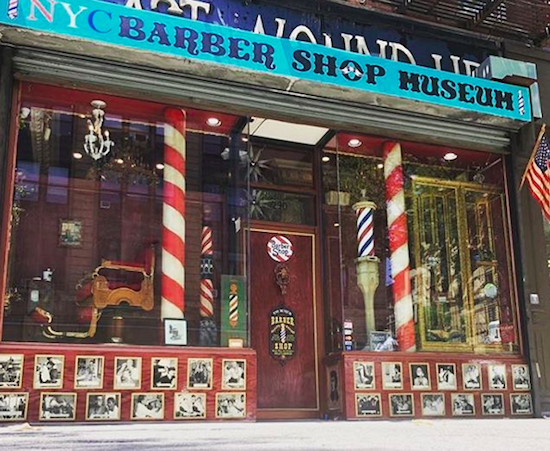Comprehending this Effect on Ecological Regulations in routine Functions within Barber Salons.
Wiki Article
Environmental regulations have a vital role in influencing how businesses function, including hairdressing salons. These regulations are created to protect the ecosystem and community well-being by controlling refuse management, atmospheric conditions, and resource consumption. Barber salons, while primarily focused on hairstyling and grooming, must also adhere to these regulations to ensure they do not impact the environment. Recognizing these guidelines helps barber shop owners achieve compliance and promote a eco-friendly operating framework.

A notable aspect of environmental policies affecting grooming establishments is waste management. Salons generate various types of waste, including cuttings, styling agents, and packaging materials. Laws often mandate these businesses to implement specific disposal methods to reduce contamination and landfill waste. For instance, trimmings can be composted or repurposed for green initiatives, while chemical waste must be disposed of according to local guidelines. By handling disposables responsibly, haircare providers give back positively to their neighborhoods and the planet.
Air quality is another essential area affected by ecological policies. Many barber shops use formulations that emit VOCs, which can harm air conditions. Regulations may restrict the use of certain substances in hair dyes and cosmetic solutions, see this website encouraging stylists to choose more environmentally conscious options. Switching to greener ingredients not only improves air quality but also appeals to customers who value sustainability. Haircare businesses can enhance their reputation by embracing environmentally friendly standards that benefit both patrons and the planet.
Water consumption is also regulated by environmental regulations that can affect daily operations in barber shops. Many areas have restrictions on resource consumption due to dry spells or other ecological challenges. websites Barber shops need to implement water-saving techniques, such as low-flow faucets and efficient washing methods for towels and tools. These practices not only help comply with regulations but also reduce utility costs for business owners. By being mindful of water consumption, barber shops can play a part in conserving this vital element.
To summarize, grasping eco-friendly policies is essential for barber shop owners who want to run a successful and sustainable operation. By prioritizing refuse control, indoor air safety, and resource consumption, haircare facilities can generate a positive impact on their communities while ensuring compliance with the law. Embracing sustainable practices not only supports the planet but also builds client trust as patrons increasingly value eco-conscious businesses. Ultimately, integrating these regulations into routine practices results in a cleaner ecosystem and a prosperous grooming business.